Abstract
Veterinary services are to be considered essential businesses during COVID-19 pandemic. Veterinarians and their teams provide important animal and public health disease surveillance to prevent disease outbreaks, including of zoonotic diseases. They ensure food security and that people have safe food to eat by ensuring only healthy animals and their products can enter the food supply. Veterinarians provide ongoing medical care and oversight as well as surgical and emergency services to ill and injured animals. The veterinary services also include the national and regional veterinary regulatory and inspection services, which oversee the integrity of public health. They also oversee veterinary services conducted in animal hospitals, mobile clinics, ambulatory services, zoos, etc. In addition, they oversee the care of laboratory animals, which are critical to research medicines and vaccines, including vaccine research against COVID-19.This pandemic awakens the need for longstanding and sustainable one health collaboration which can take many forms. The veterinarians are good at one health concept. Veterinary epidemiologist have been supporting their counterparts in the public health response to tract the disease in human and to support the development of effective public health interventions. This pandemic is an opportunity and obligation for change. Failing to seize this moment could undermine public health and global security for future generations.
Keyword: ONE HEALTH, food security, control and prevention, monitor public health response.
Introduction
The COVID-19 pandemic is a wake-up call for leaders of the North American veterinary profession. Veterinary professionals constitute an invaluable workforce capable of delivering public services essential to monitor the ongoing pandemic and to prevent upcoming pandemic.
In 2004, Dr. Frederick Leighton analysed the relevance of 21st century North American veterinary medicine through the “Lifeboat Test.” He argued that if “the Titanic of collective human enterprise runs into an iceberg of some unanticipated and severe difficulty”, people in essential professions including food production, healthcare, and education would be given lifeboats. He writes, “Veterinary medicine, as currently practiced, will go down with the ship” Hollier et al reached out to the veterinary profession about Leighton’s “Lifeboat Test” in 2014 and argued that market forces based disproportionately on companion animal have side-lined the profession’s foundational societal values
Despite the profession’s disproportionate focus on private clinical practice and companion animal medicine, veterinarians possess a very valuable One Health foundation that can be put to greater use during this global pandemic. The pandemic’s most deeply rooted effects could lie in its potential degradation of Global food security which can be better preserved if more veterinarians embrace their public health foundation.
Call for Challenges
Does covid-19 is an animal virus? Does covid-19 transmitted via chickens? These irrelevant questions awaked the veterinarians. A lot of misleading post on social media created a false impression that human can contract the coronavirus through chickens, even after scientist had proved that COVID -19 is an variant of SARS-CoV -1. Such rumors’ decline the price of meat and egg which cause heavy financial loss to the farmers. Here comes the veterinarians’ role who are specialised in microbiology and epidemiology to prove that covid-19 is not spread via birds or any other animal sources. Even though it comes under the family of coronaviridae, this virus is not much similar to bird corona virus which cause infectious bursal disease.
“Should we be afraid of getting COVID from animals? No, animals have to be afraid to get it from human, not the other way round”. Scientist worked around the clock to prove the above mentioned statement.
We are One– One Health Concept
COVID-19 has reminded us that “we are one” and an opportunity has come to refocus on our health policies. Health sector sans borders and asks for cross-border collaboration. Across the world health oriented research transits from basic sciences to the veterinary and medical fields. Various sectors like the ones of medical, pharmaceutical and veterinary offer direct health services while other related sectors like agriculture, forestry and environment provide indirect services to the animals and human. All these fields have been forced to communicate, collaborate on and coordinate activities for “One Health” initiative. There has been a dream to see these sectors co-ordinate. During the current COVID-19 crisis when everything looks bleak, a ray of hope is visible through the collaborative and co-ordinated efforts of professionals from diverse fields to mitigate this pandemic. Such joint efforts could finally turn fruitful via covid-19 vaccine development.
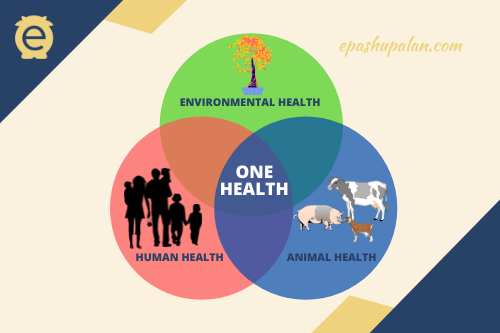
Veterinarians being an integral and essential part of the global health, offer diverse roles not only related to the health and welfare of animals but prevention, management and control of zoonotic diseases as well. Their role in ensuring the healthy food and its safety in no way can be ignored. Veterinary care for food animals ensures their good health and thus, to food safety. This also supports agricultural livelihoods and the viability of our farms. For example, instead of COVID-19 lockdown FMD vaccination was done successfully all over Tamilnadu. This indicates veterinarians sincerity with their profession along with social responsibilities.
OIE/WVA Joint Statement
In the framework of the COVID-19 pandemic, the World Organisation for Animal Health (OIE) and the World Veterinary Association (WVA) jointly draw attention to the roles and responsibilities of the veterinary profession for public health. They highlight the specific veterinary activities which are key to ensure a continuum in food safety, disease prevention and emergency management.
In the current situation, it is crucial that, amongst their numerous activities, they can sustain those necessary to ensure that:
- National and regional veterinary regulatory and inspection services can oversee the integrity of public health
- Only healthy animals and their by-products enter the food supply to guarantee food safety for the populations,
- Emergency situations can be addressed,
- Preventative measures, such as vaccination against diseases with a significant public health or economic impact, are maintained.
- Priority research activities continue.
When conducting their work, veterinarians have the responsibility to safeguard their health, the health of those they work with, and their clients’ health. Hence, they must ensure that appropriate levels of biosecurity are implemented, that their personnel are protected with the necessary equipment, and that animal owners are informed of precautionary measures in place. It is the responsibility of each individual to ensure that appropriate behaviors are respected in the framework of these activities, to avoid further spread of COVID-19.
Harmony with Colleagues and Medical Profession
As veterinarians, we are a ‘One Health’ profession and unfortunately, have plenty of experience with the prevention and control of global outbreaks. Now more than ever, veterinarians are assisting in most countries our human medical colleagues. Several universities/practices already donated their masks and other protective materials to hospitals. In many countries the veterinary profession is/has inventoried key equipment such as respirators, for if needed for the medical sector. Veterinary institutes and laboratories are helping in many countries processing COVID tests. The animal health industry is producing medical devices and protective equipment. Many veterinarians are lead persons in COVID task forces in national countries. Together, in a One Health way, we will be able to control COVID.
Veterinary solidarity within the profession is also at work. In some countries, due to self-isolation or social distancing measures, the veterinary workforce is stretched. Some of us became or will become ill, some of us will need to care for others. It is vital that we all work together as a profession to mitigate any impacts on our own and our colleagues’ wellbeing, as well as serious animal welfare impacts, as much as possible. Contingency plans also need to be developed for rural areas in which often only one or two veterinary practices operate.
Conclusion
During this crucial period veterinarians render their full support to the medical professionals. Veterinarians also keep their eye on animals whether COVID-19 becomes a zoonotic in future or not. Every professional veterinarians should take-up the vaccines without fail. Any pandemic will have negative impact on people, animals and our planet, but we should face the challenges with courage. The veterinarians who are expert in hearing the pain of voiceless creature rendered their wholehearted support not only by monitoring animal health but as a whole ONE HEALTH. The unprecedented nature of this pandemic and the mysteries around this virus require new and innovative approaches to tackle it; this will only be developed through cross sectoral collaboration and collective action.
Reference
- Veterinarians responses to covid 19 crisis- great Kashmir-Dr.Mudasir Bashir Gugjoo.
- COVID-19 and the veterinary profession-FVE.
- COVID-19 and veterinary practices designated as essential-Oie and WVA joint statement.

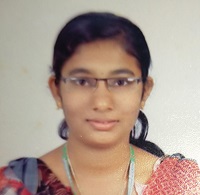
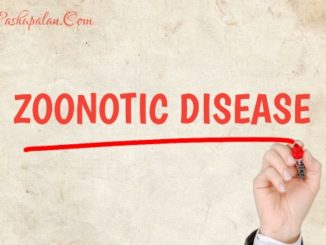
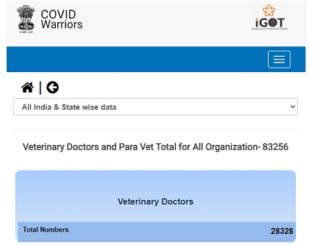
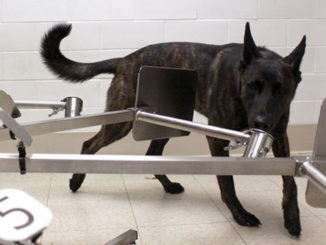

Be the first to comment